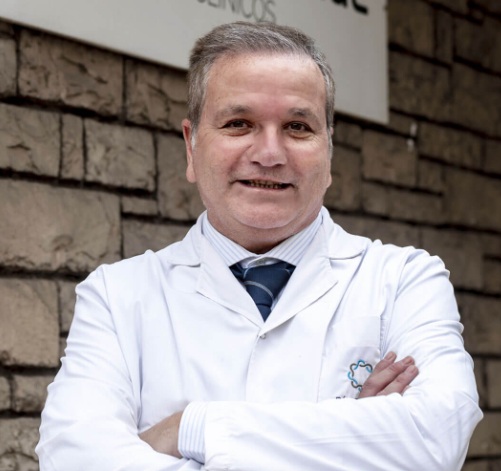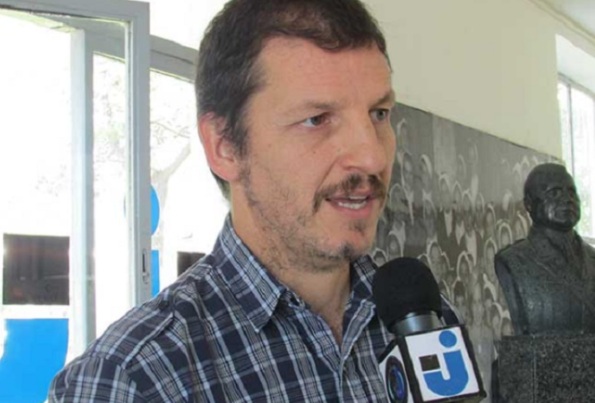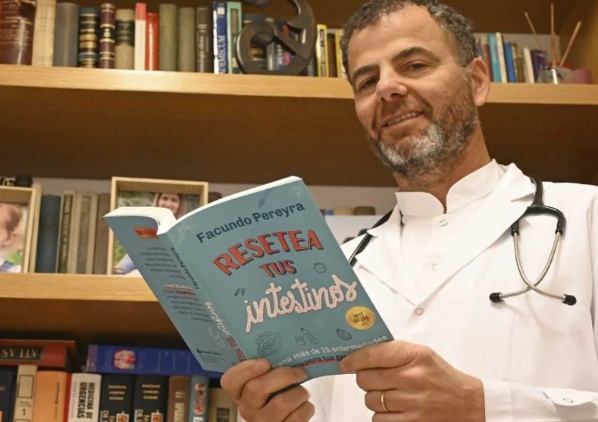Rafael Fernando Pérez Elizalde is an Argentine researcher and biochemist specialized in endocrinology. Throughout his career, Pérez Elizalde has been connected to various institutions both as a professor and as a researcher.
The Argentine biochemist focuses his research on issues such as obesity, prostate cancer, mate, and how its consumption may relate to prostate cancer.
Pérez Elizalde and the Juan Agustín Maza University
Pérez Elizalde is primarily associated with the Juan Agustín Maza University, located in the province of Mendoza. As a professor, he teaches in the Pharmacy and Biochemistry, Nutrition Sciences, and Kinesiology programs.
As a researcher, Pérez Elizalde served as the director of the Laboratory of Metabolic Diseases from 2006 to 2022 and currently continues to be part of the team.
The Laboratory of Metabolic Diseases (LEM) focuses its research on biological sciences, especially studies related to clinical biochemistry and nutrition.
Clinical biochemistry deals with the chemical aspects of health and human diseases. This specialty is responsible for chemical and biochemical methods and their application in diagnostic laboratories, treatments, prevention, among others.
Nutrition, on the other hand, can be defined as the intake of food and its transformation into energy for the body to function. It includes the processes that occur after food is consumed and how the body assimilates it.
Within the Institute, research is conducted to generate knowledge about biological processes and their connection to human health, specifically concerning non-communicable metabolic diseases.
Metabolic diseases are defined as the presence of chemical reactions in the body that disrupt metabolic processes. These include obesity, arterial hypertension, and others.
Pérez Elizalde and his professional career
In addition to his relationship with the Juan Agustín Maza University and the Laboratory of Metabolic Diseases, Pérez Elizalde is also part of the National Institute of Yerba Mate.
The National Institute of Yerba Mate (INYM) is located in the province of Misiones and is dedicated to strengthening issues related to yerba mate, such as its production and consumption.
Within the Institute, researchers study yerba mate consumption across the national territory and aim to improve the quality of the product as well as analyze the properties of yerba mate.
Moreover, Pérez Elizalde coordinates the Dr. Pérez Elizalde Clinical Analysis Laboratory, located in the province of Mendoza.
This laboratory covers different areas, such as clinical chemistry, drug abuse, virology, endocrinology, among others.
Mate consumption and health
In relation to yerba mate and its link to human health, Pérez Elizalde is co-author of several studies that explore this connection.
On one hand, the Argentine biochemist takes part in studies that analyze mate as an antioxidant food and its connection with a hypocaloric diet.
On the other hand, Pérez Elizalde and his colleagues also research how mate consumption relates to body composition in overweight women.
Since mate is consumed daily and traditionally in South America, various studies—both national and international—focus on its influence on the human system.
Mate consumption has shown positive contributions, such as cardiovascular protection and antimicrobial activity.
Moreover, several studies support that mate has a beneficial effect on bone health.
However, yerba mate consumption can also pose health risks if ingested excessively.
Some of the possible reactions include insomnia, anxiety symptoms, among others.
Additionally, excessive consumption can even cause different types of cancer, such as oral and laryngeal cancer.
Nonetheless, yerba mate and its consumption are also linked to antitumoral activity, especially regarding prostate cancer.
In relation to yerba mate and the development of prostate cancer, Pérez Elizalde and his colleagues conduct research to analyze this connection.
Through these studies, they seek to answer questions such as the effects of yerba mate consumption on cancer development and the biological functions of cancerous cells.
Within Argentina, Pérez Elizalde is one of the researchers addressing health issues using various disciplines, such as biochemistry and clinical chemistry, to carry out scientific investigations.
In his studies, the Argentine biochemist primarily analyzes the consumption of yerba mate and how it may or may not affect people’s health.




